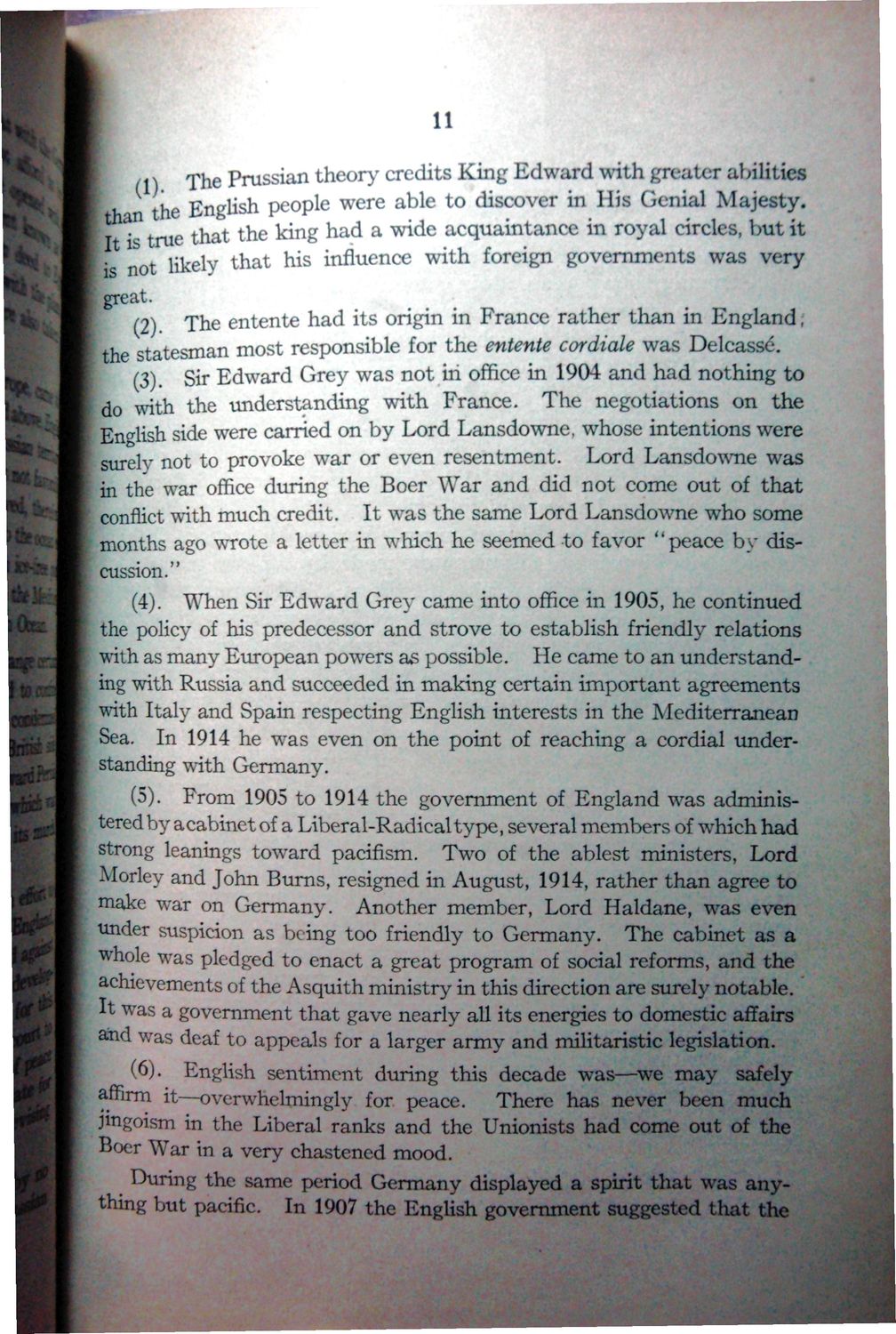Caption: War Publications - WWI Compilation 1923 - Article 15
This is a reduced-resolution page image for fast online browsing.

EXTRACTED TEXT FROM PAGE:
11 /1 \ m The Prussian theory the English people were able to discover to His Genial Majesty. true that the king had a wide acquaintance in royal circles, but it . ^ o t Yikely that his influence with foreign governments was very great. (2). The entente had its origin in France rather than in England the statesman most responsible for the entente cordiale was Delcasse. (3). Sir Edward Grey was not in office in 1904 and had nothing to do with the understanding with France. The negotiations on the English side were carried on by Lord Lansdowne, whose intentions were surely not to provoke war or even resentment. Lord Lansdowne was during with Lord wrote a letter in which he seemed to favor '' peace cussion.'' (4). When Sir Edward Grey came into office in 1905, he continued the policy of his predecessor and strove to establish friendly relations with as many European powers as possible. He came to an understanding with Russia and succeeded in making certain important agreements with Italy and Spain respecting: English interests in the Mediterranean Sea. under Germany (5). From 1905 to 1914 the government of England was administered by a cabinet of a Liberal-Radical type, several members of which had strong leanings toward pacifism. Two of the ablest ministers, Lord John Burns, resigned in August make war on Germany. Another member, Lord Haldane, \ as under suspicion as being too friendly to Germany. The cabinet iim nistry government army and militaristic (6). English sentiment during this decade was—we may safely affirm it—overwhelmingly for peace. There has never been much Jingoism in the Liberal ranks and the Unionists had come out of the Boer War in a very chastened mood. During the same period Germany displayed a spirit that was anything but pacific. In 1907 the English government suggested that the
|